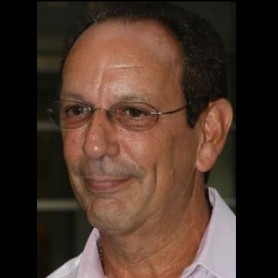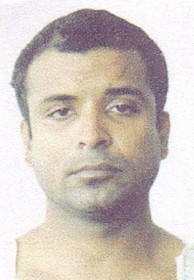The conviction of flamboyant US attorney Robert Simels yesterday led to renewed calls by the opposition for an independent probe into the government’s alleged connection to his ex-client, confessed drug kingpin Roger Khan whose phantom squad is said to have carried out a murderous campaign here over a four-year period.

After seven days of deliberation, a 12-member jury in a Brooklyn courtroom returned a guilty verdict for Simels and his assistant Arianne Irving, who were caught on tape plotting to silence witnesses against Khan. The verdict followed two weeks of explosive testimony from witnesses that included a professed member of Khan’s “Phantom Squad” of killers, Selwyn Vaughn. He tied the government to Khan’s activities, including ordering the murder of activist Ronald Waddell and others. Testimony implicated Health Minister Dr Leslie Ramsammy, who was identified as the government official who met with Khan and facilitated the purchase of spy equipment he used to carry out surveillance here. Ramsammy and government have denied the allegations and the minister has dared his accusers to prove otherwise.
Last evening, leaders of the main opposition PNCR and the AFC, Robert Corbin and Raphael Trotman respectively, told Stabroek News the verdict came as no surprise and they urged that local authorities immediately approach their US counterparts for information so that investigations could be launched and charges laid. The joint opposition parties have been calling for an independent probe of the claims.
Simels is now under house arrest as he awaits sentencing, scheduled for November 30. He looked angry when the verdict was handed down, finding him guilty of 12 of the 13 charges he faced, including multiple counts of witness tampering, bribery and illegal possession of eavesdropping equipment. Irving, who sobbed, was found guilty of on two counts of witness tampering.

Simels, described in one report as a fixture in New York courthouses, now faces 15 years in jail-the same sentence that could be handed down to his former client Khan, who entered a guilty plea for drug trafficking, witness tampering and gun running. Simels’ famous clients included Henry Hill, whose exploits were the basis of the Martin Scorsese mob drama “Goodfellas,” and Kenneth “Supreme” McGriff, a legendary gang leader accused of funnelling drug money into rap music label Murder Inc. Simels also represented Ken O’Brien and Mark Gastineau, two former New York Jet players who had brushes with the law.
‘Compelling’
Last evening Trotman told Stabroek News that the evidence presented in court against Simels was compelling, while calling on those “commentators,” who said that drawing conclusions should await the outcome of the court case, to revisit their remarks. “All right thinking Guyanese knew the evidence was credible because it tied into things in Guyana,” Trotman declared last night.
He said that with the evidence having now been accepted in a US court of law, if the Guyana Police Force and the Director of Public Prosecution (DPP) have “one ounce of professionalism left” they would approach their counterparts in the US for information so that local investigations can be held and persons held accountable for crimes committed here.
Meanwhile, Corbin said the verdict speaks for itself and pointed out that the evidence implicated the Guyana government as being connected to Khan, whose phantom gang is said to be responsible for an unknown number of murders of Guyanese.
The government has repeatedly denied having any connection to Khan and has gone as far to say that it did not know him, though he had several high profile businesses here. Corbin said it is something the PNCR has been saying for years and the evidence and Khan’s guilty plea have now validated its claim as the court has found that all that was said to be cogent. He added that the call for an inquiry has always been strong and both he and Trotman urged that an inquiry be held.
‘Tragedy’
According to Bloomberg.com, after the verdict, U.S. District Court Judge John Gleeson denied the government’s request to jail Simels, 62, on the grounds he was a flight risk. He ordered Simels to remain under house arrest at his home in New York’s Westchester County while wearing an electronic ankle bracelet.
Gerald Shargel, a lawyer for Simels, said his client still had many cases to wind down and wanted to work from home.
According to the report, the judge called the case a “tragedy” and said he found “especially disturbing” the testimony about the matter-of-fact manner in which Simels discussed having witnesses lie.
Gleeson said Simels had a “dark side.” “People could have easily been murdered and Simels knew that,” the judge said. “Simels crossed a bright line between what lawyers must do on behalf of their clients and what is forbidden,” he added, noting later that Simels “spent years living on the other side of that line.”
The report quoted Shargel as saying that he would appeal the verdict. “I am deeply saddened for Bob and his family,” he said. “It’s an unusual case when you’re representing another criminal defense lawyer,” he added.
“This case demonstrates that those who seek to use their license to practice law as license to commit crimes will be brought to justice,” Brooklyn U.S. Attorney Benton Campbell said in a statement.
‘Informant ’
Vaughn, who said he became a Drug Enforcement Agency (DEA) informant after Khan was arrested and taken to the US in 2006, testified that Khan had ordered the executions of political activist Waddell and Agricola boxing coach Donald Allison. He told the court that he had been the lookout man in both cases.
Asked specifically whether he ever met with Ramsammy, he said that he met the minister both at Roger Khan’s Carpet Cleaning office in Bel Air and that he went to the Minister’s office on behalf of Khan who introduced them.
Vaughn’s testimony also mentioned the involvement of Khan in trying to quell and capture the five February 23 prison escapees. He also named several Guyanese individuals who are involved in the narcotics trade between Guyana and North America and Europe.
He indicated that Khan’s group received help from Ramsammy on behalf of the government and he added that President Bharrat Jagdeo would not like Khan to talk – which the head of state contradicted, saying he is unafraid of anything Khan would reveal. “Let Khan speak whatever he knows because this so-called informant can’t know what I want. I have publicly said that Khan must say who he was fighting on behalf of…,” Jagdeo said in reference to the statement made by Vaughn. He added that government saw both the Buxton gang and Khan’s outfit as criminal enterprises, which it was opposed to since “our job is to bring down criminal enterprises.”
In 2006, just prior to him fleeing to Suriname, which saw him being arrested and later taken to the US, Khan had claimed in newspaper advertisements that he fought alongside law enforcement to defeat criminals in Guyana. However, prosecutors have countered that Khan’s phantom group was actually involved in criminal activities, such as killing rivals, to further his drug enterprise.
Simels later took the stand himself and testified that Khan had received government assistance “to have the intercept equipment and guns to fight the Buxton gang known as the Taliban.” Simels had alleged government ties to Khan and he publicly stated it during testimony.
He also alleged that Ramsammy authorized the purchase of the intercept equipment used by Khan. While government denied any involvement in the purchase of the spy equipment the Co-director of UK firm Smith Myers testified in the New York court that the cellular intercept equipment used by drug Khan had been sold to the Government of Guyana (GoG). Peter Myers, who co-founded the firm, testified under oath that the intercept equipment, including an intercept receiver and two laptops, was sold by the company’s Florida sales office through the Fort Lauderdale-based Spy Shop to the GoG. Meyers also identified the equipment in court and said it was only sold to governments.
The intercept receiver Myers said was identified as the CSM 7806 as well as two “TOUGHBOOK” Laptops, a small one and a larger one. He told the court both in direct evidence and during cross-examination that the only things missing from the equipment that was sold to Guyana were a USB cable and a small rubber antenna, both regular items that could be picked up at any electronic store. Myers, in his testimony, said that both laptops were working, while the intercept receiver had a minor power supply problem.
Simels also said that he met Minister Ramsammy and Minister of Home Affairs Clement Rohee, among other officials, during visits here while working on the Khan case. Minister Ramsammy rejected this claim while Rohee declined to comment.
Taking the witness stand in his own defence, Simels described putting in long hours and using private investigators to dig up dirt on drug dealers-turned-government witnesses, AP said. Last year, as the Khan case was nearing trial, Simels was approached by a Drug Enforcement Administration cooperator wearing a wire who told him he was a former “Phantom Squad” member.
In one taped conversation, the cooperator suggested a witness “might suddenly get amnesia” if paid enough money. “That’s a terrible thing, but if it happens, it happens,” Simels responded. Later in the same meeting, the lawyer remarked: “Obviously, any witness you can eliminate is a good thing.”
In another discussion about locating relatives of a witness, Simels was recorded telling the cooperator that Khan had instructed, “Don’t kill the mother.” Khan “thinks that if the mother gets killed that … the government will go crazy, and he’s probably right.” Simels testified he merely meant he wanted enough ammunition to discredit the witnesses in front of a jury. “It’s part of the vernacular of being a lawyer,” Simels said when asked about his use of the word “killed.”
Stabroek News has seen a transcript of secretly recorded conversations that Vaughn had with Simels and Irving before their arrests. They included details of how Vaughn met dead fugitive Rondell “Fineman” Rawlins, believed to have been the head of a gang that terrorised the country and committed two massacres at Lusignan and Bartica. Police have also claimed he slaughtered killed eight miners at Lindo Creek last year.
Vaughn then related how he ended up working for Khan which was after his cousin, who once worked for Khan, ended up in jail in the US. It was in January 2005, Vaughn said, that he met the “director.” At that time, Vaughn lived in Agricola next door to Allison. Simels and Vaughn spoke about the fact that Allison was deported from the US then Simels asked Vaughn what he actually did in connection with Khan. Vaughn: “Basically we wanted to… penetrate this Buxton group, and due to the fact that Fineman and I… you know we were classmates, we were school mates, it was easy for me to do that, understanding he would accept me as one.” He said Khan used him to go into Buxton because he was “neutral and unblemished….” Khan, he said, felt that Buxton was a troublesome area and unless it was brought under control Guyana would remain in chaos.





